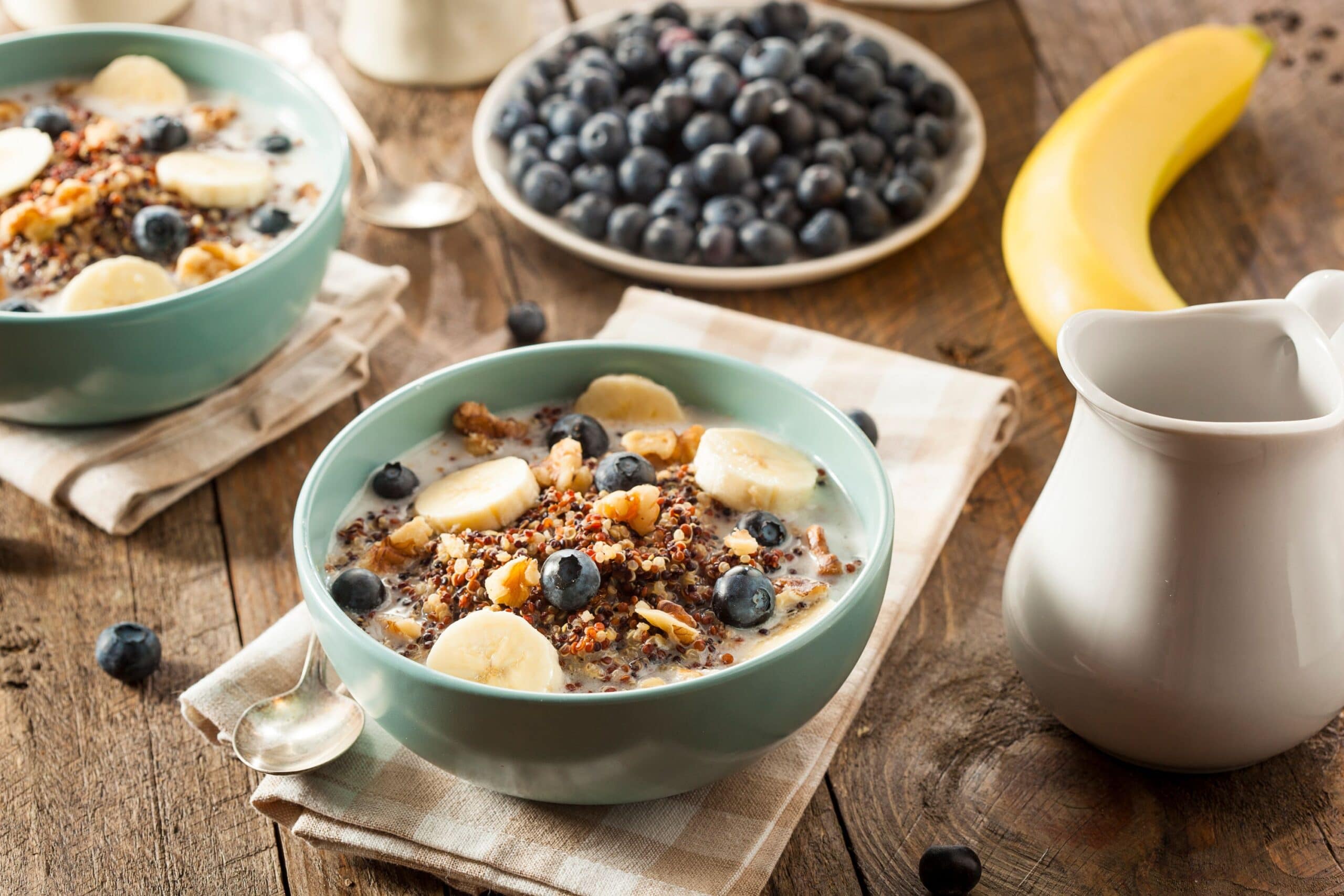We have all heard that breakfast is the most important meal of the day – but is it really?
Eating a good breakfast, we are often told, boosts your brain power – and a 2016 US review of 54 studies indeed found that eating breakfast has a “small but robust advantage for memory”.
But the effects on other brain functions, including your ability to pay attention, were found to be “largely equivocal” in that review and further research was said to be needed.
But what we do know for sure is that we all need nutrients to keep us healthy, and breakfast is a great way to get goodness inside you.
A new study by Whole Earth (wholeearthfoods.com) found a third of adults have one of their five-a-day every day for breakfast, and nutritionist Charlotte Stirling-Reed says: “Starting the day with a varied breakfast can help ensure you kick off your morning with a good dose of the energy and nutrients you need throughout the day.
“Additionally – depending on what breakfast you choose – you can also use breakfast to tick off some of those all-important food groups you need every day, such as wholegrains, proteins, fruit and veg and dairy or alternatives.”
Helena Gibson-Moore, a nutrition scientist at the British Nutrition Foundation (nutrition.org.uk), adds: “The first meal of the day is a good opportunity to get essential nutrients needed for good health.
“For example, in the UK on average we don’t eat enough fibre and so popular choices like toast from wholegrain breads with nut butter or baked beans, wholegrain breakfast cereals and fruit, can help us increase our fibre intake.”
Here, the nutrition experts answer all our health-related questions about breakfast.
Will eating breakfast make a difference to my weight?

The evidence on whether having breakfast or not is associated with weight control is inconsistent, explains Gibson-Moore. “Some research suggests people who regularly have breakfast are more likely to be a healthier weight, but many of these studies are observational, so don’t show a direct cause and effect,” she says. “It may be that these people have healthier lifestyles overall and tend to make healthier food choices.
“Interestingly, a recent review of trials looking at the effect of breakfast on weight or energy intake found the addition of breakfast doesn’t have a clear effect on weight loss and may result in higher overall energy intake. However, the authors say these findings were based on low-quality research so we can’t say for sure if this is the case.”
Are there other possible benefits of eating breakfast?
It’s thought that the Circadian rhythm (body clock) influences metabolism and energy expenditure, and Gibson-Moore says: “There’s some evidence that our circadian rhythms play a role in regulating the timing of key metabolic processes, including glucose control, energy expenditure and digestive processes.
“Many of these rhythms peak in the morning, indicating the body may be better adapted to digesting and metabolising food earlier in the day.”
What’s a typical breakfast?

The Whole Earth survey found the average adult’s weekday breakfast includes a non-sugar coated cereal like puffed rice, semi-skimmed milk, white bread toast, butter, jam, water, and banana. Such a breakfast contains 13g of sugar, which accounts for 43% of an adult’s daily guideline allowance of sugar.
Stirling-Reed says: “I’m a fan of trying to change up your breakfasts as much as possible to keep it varied and avoid getting bored of the same option each day. Breakfast should be enjoyable, especially if you can make the most of it and sit down to eat as a family. Some of my favourite options include overnight oats, toast and pancakes. Why not try adding fruit, peanut butter and yoghurt for flavour instead of jams, sugar and chocolate spreads?”
What counts as a healthy breakfast?
A healthy breakfast contains essential nutrients, fibre and at least one portion of fruit or vegetables, and should be low in free sugars and saturated fat, says Gibson-Moore.
She suggests trying: wholegrain toast with peanut butter and sliced banana; high fibre, unsweetened breakfast cereal with semi-skimmed milk topped with dried fruit; baked beans on wholemeal toast with grilled tomatoes; poached eggs on wholegrain English muffin with mushrooms or avocado; porridge topped with pumpkin seeds and chopped fruit or overnight oats (oats, yoghurt and fresh/canned or dried fruit, layered and left overnight).
Is a traditional cooked breakfast unhealthy?

If you like a cooked breakfast occasionally then they can be a healthy option, says Gibson-Moore. For example, choose from wholemeal toast, poached or scrambled eggs, one slice of grilled bacon, canned tomatoes and reduced sugar and salt baked beans. And if you’re trying to lose weight, use small amounts of unsaturated fats like olive or rapeseed oil in a spray.
What if you simply don’t feel like eating in the morning?
A recent survey of 2,000 adults by Fuel10k found the most common reason to skip breakfast was not being hungry in the morning (55%), followed by feeling it’s too early to eat (37%), and not having enough time (13%). And one in 10 would rather spend more time in bed.
“If you’re not hungry first thing in the morning or are pushed for time, then grab a piece of fruit or take your porridge with you, so you can eat it on the go, or have cereal at your desk,” suggests Gibson-Moore.
“If you do skip breakfast then try and have a healthy, balance of foods for the rest of the day. Don’t be tempted by snacks or bars that are high in added sugars and saturated fat that may be quick and easy to reach for.”





